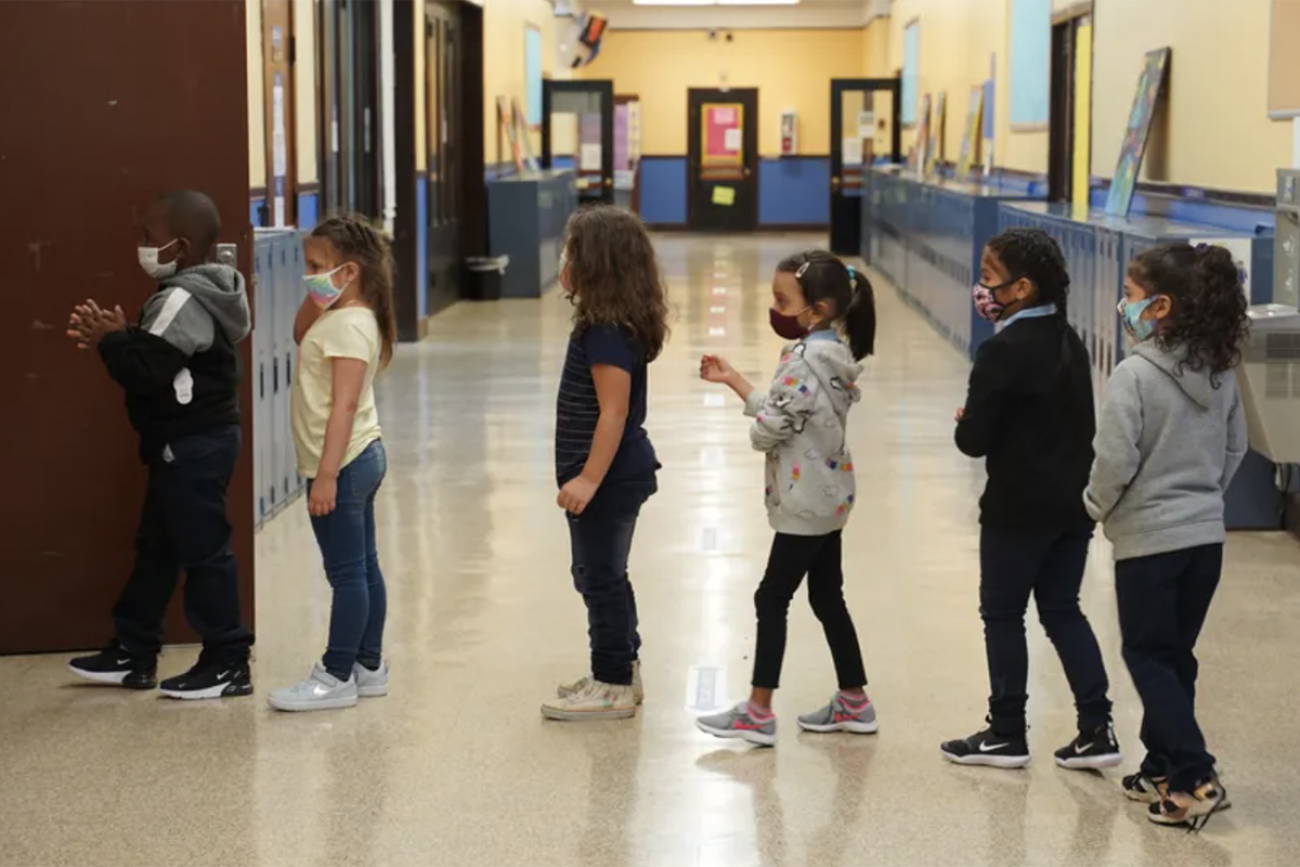Michigan schools running short on COVID tests, imperiling in-class learning

Jan. 20: How many COVID cases are in Michigan schools? State has no idea anymore
As Michigan buckles under the omicron surge, the state is running low on COVID test kits for schools, with state officials “triaging” its limited supply.
Some districts may run out as soon as next week, said one school official, hobbling efforts to test possibly infected students.
Linda Vail, Ingham County health officer, said Wednesday there is a “COVID test supply crisis” that will impact schools in the coming weeks. Vail said state officials have offered no prediction on when the shortage could end.
Related:
- Mailbox-bound: Free COVID tests now available for Michigan homes
- Omicron requires a better mask. How to choose one that’s best for you.
- At U.P. school, many students felt fine, but 1-in-6 tested COVID positive
“They (state officials) are working on the supply of testing kits, and they did have to prioritize schools at higher risk,” Vail said.
The scramble for tests in Michigan reflects nationwide shortages, said Elizabeth Hertel, director of the Michigan Department of Health and Human Services.
“We are getting the supply out there that we have right now,” Hertel told Bridge Michigan Wednesday. That includes 300,000 tests scheduled to be shipped Thursday to schools, prisons and nursing homes, of which nearly 118,000 are earmarked for schools.
Two more shipments are expected in the coming days, though the quantities are still unknown, Hertel said.
“We don’t have any control of the supply chain,” she said. “Our hope is to be able to continue to supply as broadly as possible, although we may not be able to fulfill the quantity of every school that’s asking.”
Schools use COVID test kits to test children who appear sick, and for students taking part in “test-to-stay” programs. In many districts, students who have had close contact with classmates or teachers who test positive for the virus have the option of quarantining at home for a minimum of five days, or getting tested at school during that same time period.
Without an adequate supply of tests, schools will need to choose whether to force those students to quarantine at home, or continue with in-person classes without testing.
Jason Mellema, superintendent of the Ingham Intermediate School District, said five of Ingham County’s 13 school districts are likely to run out of COVID tests next week unless they receive additional tests from the state.
“As soon as you run out of antigen tests, it becomes difficult to do contact tracing and you’re not going to be able to test-to-stay,” Mellema said.
In Oakland County, Hazel Park Community Schools was “down to our last 75” tests — a one-day supply — when a new shipment arrived Tuesday, said Superintendent Amy Kruppe. Those kits arrived after a desperate Kruppe asked the lobbyist for Oakland Schools to reach out directly to the office of Gov. Gretchen Whitmer to plead for tests.
“We’ve been test-to-stay (for students with close-contact to someone who tests positive) since October, so we go through a lot of tests,” Kruppe said.
A national shortage
Demand for tests has surged across the nation since before the holidays, often leading to empty shelves at pharmacy retailers, “out-of-stock” messages online, and long lines at public testing sites.
This week, the Biden administration unveiled an effort to distribute 500 million tests to Americans through an online ordering portal, but they are not expected to arrive in mailboxes for a week or more.
Meanwhile, MDHHS, which distributes tests to schools mainly through two programs — a test-to-stay program and the MI Backpack Program, in which families can request tests through their schools — is “triaging requests” for tests, Lynn Sutfin, a department spokesperson, told Bridge.
Munising Public Schools in the Upper Peninsula was burning through about 300 tests each day last week, when about half of the entire student body — about 300 of its 600 students — were identified as close contacts, requiring them to test to remain in class, said Superintendent Pete Kelto.
Older students dropped by the office each morning, swabbed their noses, and waited for results before heading to class. For younger students, staff pushed testing carts around to classrooms. Case numbers skyrocketed after the testing.
Munising had maintained a universal masking policy through most of the current school year, but the school board lifted the mask policy starting after the holiday break, Kelto said.
It’s not clear if it was the sheer contagiousness of omicron or the change in mask policy that drove the spike. Whatever the cause, 62 students and 12 staff had tested positive the second week of school after the holidays. And with each new case, testing had become “almost a way of life” for those students determined to have been in close contact with infected classmates, Kelto said.
“What we thought was a safe amount of tests quickly dwindled,” he said.
As of Wednesday, the district had 800 tests left. A shipment of 2,500 isn’t expected for several days. The school district is lucky, though: Kelto said the regional LMAS Health Department, a local hospital and intermediate school district have offered help if the district runs out.
Ingham County schools may not be as lucky. Health officer Vail and county superintendents are scrambling to develop a plan to keep students in classrooms if schools run out of tests. The plan, as of Wednesday, is to allow test-to-stay students to remain in classrooms even if schools are unable to give them COVID tests. Those students will be required to wear KN-95 masks, or wear two cloth masks, said Vail.
“There is a slightly larger risk (of COVID spread), but based on our data, few of the test-to-stay kids are testing positive,” Vail said, which may be in part because all students in Ingham County are required to wear face coverings.
“We don't want to be a barrier that causes them to close schools, rather than being a resource for them for alternate steps,” Vail said.
Michigan Education Watch
Michigan Education Watch is made possible by generous financial support from:
Subscribe to Michigan Education Watch
See what new members are saying about why they donated to Bridge Michigan:
- “In order for this information to be accurate and unbiased it must be underwritten by its readers, not by special interests.” - Larry S.
- “Not many other media sources report on the topics Bridge does.” - Susan B.
- “Your journalism is outstanding and rare these days.” - Mark S.
If you want to ensure the future of nonpartisan, nonprofit Michigan journalism, please become a member today. You, too, will be asked why you donated and maybe we'll feature your quote next time!






